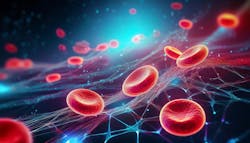Mayo Clinic’s AI detects blood mutations early, study finds
Mayo Clinic has built an artificial intelligence (AI) tool that can aid in the detection of clonal hematopoiesis of indeterminate potential (CHIP), according to a release.
The tool, UNISOM, stands for UNIfied SOmatic calling and Machine learning. In an analysis of UNISOM’s functionality, the tool was able to successfully “detect nearly 80% of CHIP mutations using whole-exome sequencing, which analyzes the protein-coding regions of DNA.” When using UNISOM on Mayo Clinic Biobank’s whole-genome sequencing data, “it detected early signs of CHIP, including mutations present in fewer than 5% of blood cells.”
CHIP puts patients at higher risk of developing leukemia and heart disease, regardless of their overall health. Patients with CHIP experience no symptoms, according to Mayo Clinic. This underscores the need for a tool that can diagnose the condition.

